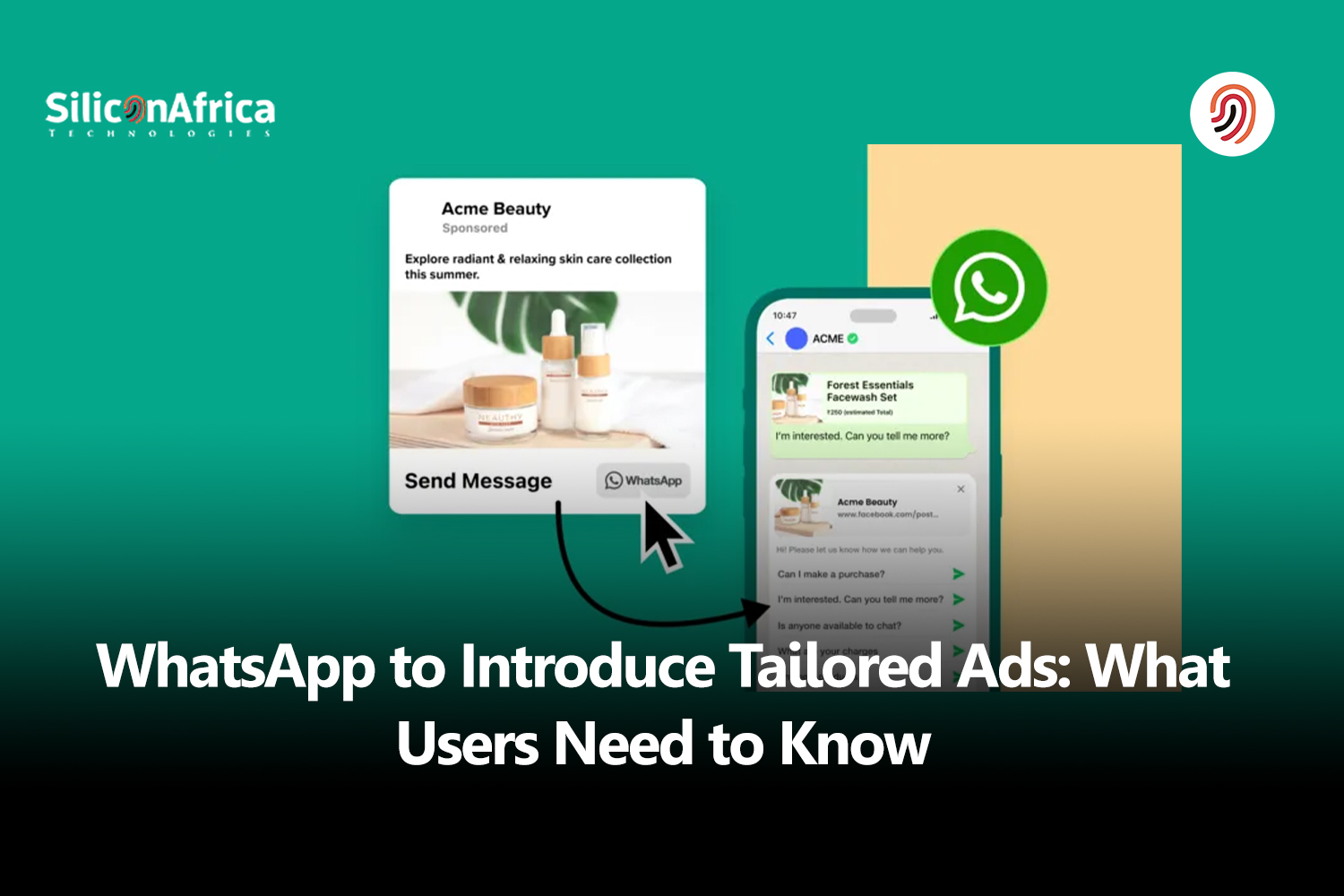Physical Address
60 Ekwema Cres, Layout 460281, Imo
Physical Address
60 Ekwema Cres, Layout 460281, Imo

WhatsApp is set to introduce ads! Get ready for a change in the way you use WhatsApp.
The popular messaging app, owned by Meta (formerly Facebook), is set to introduce targeted advertising on its platform.
While WhatsApp has historically prided itself on being ad-free, recent developments suggest a shift towards a monetization strategy that incorporates relevant ads displayed to users.
This article explores what users need to know about WhatsApp’s upcoming foray into the world of tailored advertising.
One of the biggest concerns for many users is where these ads will be displayed within the app.
According to a recent announcement by Meta, WhatsApp is planning to integrate ads into the Status feature.

Statuses, similar to Instagram stories, are temporary photo and video updates that disappear after 24 hours.
This approach aims to minimize disruption to personal chats, a core aspect of WhatsApp’s appeal.
While specifics are still emerging, reports suggest WhatsApp will leverage its parent company Meta’s vast user data pool to deliver targeted advertisements.
This data could include demographics like age, location, and even purchase history on other Meta platforms like Facebook and Instagram.
By analyzing this data, WhatsApp can potentially display ads relevant to individual user preferences, potentially enhancing the user experience by showcasing products or services that align with their interests.
The introduction of ads naturally raises concerns about user privacy.
WhatsApp has always emphasized its commitment to end-to-end encryption, a technology that scrambles messages to ensure only the sender and recipient can read them.
However, some users worry that incorporating targeted advertising might necessitate a relaxation of these privacy measures.
Meta has assured users that they will maintain their commitment to end-to-end encryption and will strive to deliver a positive ad experience that respects user privacy.
While details are still under development, it’s possible that WhatsApp might offer users some control over the types of ads they see.
This could involve allowing users to opt-out of certain categories of advertisements or adjust their privacy settings to limit data collection used for ad targeting.
It’s important to stay informed about any future updates from WhatsApp regarding user control over ad experiences.
Read More: Here is How to Move WhatsApp Data from iPhone to Android 2024
The introduction of targeted advertising signifies a significant shift for WhatsApp’s monetization strategy.
Previously, the app relied solely on its paid WhatsApp Business service, which caters to businesses looking to connect with customers.
With the addition of in-app ads, WhatsApp opens a new revenue stream, potentially allowing the platform to offer continued free service for personal users while generating income through advertising.
The introduction of tailored ads on WhatsApp represents a change for users accustomed to an ad-free experience.
While some may welcome the potential for relevant advertisements, others might be concerned about privacy implications.
As WhatsApp is set to introduce ads, it will be crucial for them to strike a balance between delivering a positive user experience and respecting user privacy.
By offering users control over the types of ads they see and maintaining a strong commitment to data security, WhatsApp can navigate this transition successfully.
Staying informed about future updates from WhatsApp will be key for users to understand their options and adapt to the evolving platform.
Was this information useful? Drop a nice comment below. You can also check out other useful contents by following us on X/Twitter @siliconafritech, Instagram @Siliconafricatech, or Facebook @SiliconAfrica.